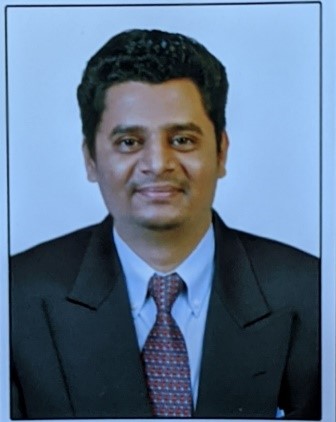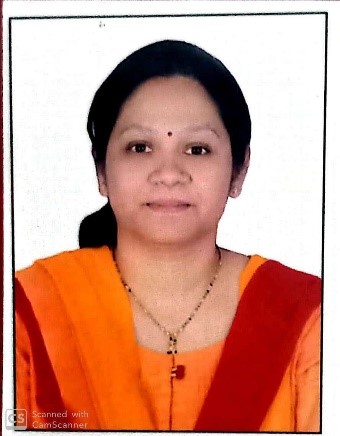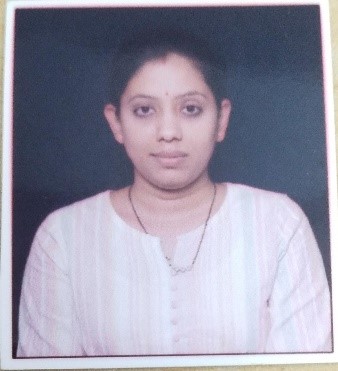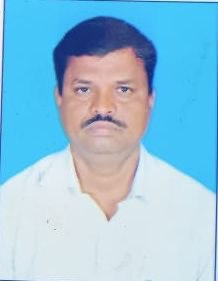Curricular and Co-curricular Activities
National Service Scheme (NSS)
The National Service Scheme (NSS) Unit of the college is connected to the Savitribai Phule Pune University's Department of National Service Scheme in Pune. 100 NSS Volunteers make up the NSS Unit. To effectively carry out NSS activities, the Unit is composed of three Program Officers: a Chief Program Officer, a Female Program Officer, and an Assistant Program Officer. The college principal and vice-principal oversee the operation of the Unit.
The National Service Scheme's motto, "Not Me, But You," serves as inspiration for the unit. The affiliating university has prescribed the Unit's own Calendar of Activities. The calendar's recommended activities are social events with a specific goal of interacting with society. Various national and international holidays are observed, along with cleanliness drives, environmental awareness initiatives, and NSS Volunteers' role in orienting the community. All of the activities listed in the Activity Calendar are carried out by the college's NSS Unit.
In addition to the scheduled calendar, the NSS Unit celebrates the coordinator, MGV Dr. Apoorva Hiray's birthday with a few events like blood donation camps and tree-planting efforts. The idols were gathered by volunteers as part of the Eco-Friendly Immersion of Lord Ganesh project, which aims to stop water pollution. The unit runs health awareness campaigns, such as an awareness campaign for HIV/AIDS. The volunteers distributed masks and took part in a vaccination awareness campaign during the COVID-19 pandemic. The Unit picks a local hamlet each year and carries out welfare operations there. NSS unit is divided into 5 groups on the names of forts of The Great Maratha Empire such as Sinhgadh, Lohgadh, Panhala, Rajgadh, Pratapgadh, each of 20 volunteers which includes 2 leaders each from male and female.
Since the NSS Unit is based on the idea of Dignity of Labor, the students involved are referred to as NSS Volunteers. A certificate of participation is given to volunteers upon completion of their two years of NSS service. In accordance with Ordinance 163, which governs affiliating universities, the volunteers' contributions to social work qualify them for grades.
Features of NSS Unit:
- A distinct NSS Department
- A capability to enroll 100 students
- Program Officers who are active and competent.
- Carrying out outreach and social welfare initiatives
- Persistently interacting with the indigenous community
- Prioritize learning about the indigenous culture.
- Recognizing societal issues and coming up with logical fixes for them.
- Enhancing pupils' communicative abilities
- Fostering a sense of teamwork and leadership among the pupils
- Attaining the students' overall growth by instilling various ideals.
National Service Scheme Committee – A. Y. 2023 – 24
Program Officers:–
| Photo | Name | Document |
|---|---|---|

|
Prof. Nikhil Panjabrao Deshmukh (Chief Program Officer) | |

|
Prof. Nilima Ashish Vasawe (Female Program Officer) | |

|
Prof. Priyanka Rajput (Assistant to Program Officers) | |

|
Non –Teaching Helping Staff |
Student Representatives A.Y. 2023-24
| Photo | Name | Document |
|---|---|---|

|
Nandini Patil (TYBSC(CS)) – Girl’s Representative | |

|
Sakshi Mathure (TYBBA(CA)) – Girl’s Representative | |

|
Vivek Patil (TYBBA(CA)) – Boy’s Representative | |

|
Nilesh Patil (TYBSC(CS)) – Boy’s Representative |
Students Representative of A.Y. 2022-23
| Photo | Name | Document |
|---|---|---|
) –Girl’s Representative.png)
|
Janhavi Shirsath(TYBCS(CS)) –Girl’s Representative | |
) –Boy’s Representative.png)
|
Shailesh Chaudhary(TYBBA(CA)) –Boy’s Representative |
Advisory Committee:-
- Dr. Apoorva P. Hiray- Chairman
- Prof. Deepak S. Dandwate – Member
- Dr. Nandkumar Mali – Member
- Dr. Laxmi Karanjikar – Member
- Prof. Chetana Desale – Member
- Prof. Nikhil Deshmukh – Member
- Prof. Nilima Vasave – Member
- Prof. Priyanka Rajput – Member
Department Best Practice
1. Title of the Practice:
Conservation of Musical Instruments from Surgana Taluka.
2. Objectives of the Practice:
- Musical Instruments used among tribal communities of Surgana are made from things which are naturally available. The first objective is to conserve and restore these musical instruments.
- At present very few people are aware about these instruments. Due to lack of awareness among young generation this fascinating art of playing music with ancient instruments is becoming outdated. So to create awareness about this ancient culture of musical instruments among youth is the second objective.
3. The Context:
Surgana Taluka is a tribal region where most of the people are from Konkan tribe. Geographically this region is surrounded by valleys and mountain ranges of Sahyadri mountains dense forest area. Highest rainfall is recorded every year from Surgana region. This region is surrounded by full of natural beauty during the rainy season. The Konkans are the majority tribe among the tribals in this taluka followed by tribes like 'Hindu MahadevKoli, Warli, Harijan and Charan’ communities living in harmony with each other. All these tribes celebrate many festivals during the year. They play music at every occasion. Musical instruments are very unique which are made from natural resources. A traditional music of unknown authorship, which is transmitted orally, is what one calls folk music. The origin of it is the beliefs and customs of ordinary people of a community. There are some musical instruments of these people, which represent all forms of the traditional songs of the community. Yatpagai, Duff, Dak, Madhal, Tarpa, Kathya, Dera, Kingari, Timki, Chitkora, Tur, Piri, Bana, Tipri. , Nagara, Ghangali, Kundudi, Pava, Ghungru, Tasha, Dholaki, Dholtuntunehe are the instruments used by the tribal people of this region.Tribal people sings and dance along with these instruments and celebrate the festivals of Dongarya Dev, Diwali, Holi, Akshay Tritiya, Bhaya, etc. Music is common practice one the occasion of the wedding ceremony. Songs or instruments are also played on the occasion of one's death. Thus music is unavoidable part of these communities.
4. The Practice:
This Practice is run by the Department of Marathi of our college. Various instruments from local communities are collected, restored and conserved in the department. Special awaarenss is crated among students of the department about these instruments by assigning different projects to B.A. as well as M.A. students. Most of the students belong to tribal communities. But in this modern era and changing life culture, these students are forgetting the old traditional knowledge and cultural heritage of music. In the past, tribal people used to entertain themselves through musical instruments, but also used it as a means of survival or earning. They make money by selling these musical instruments, playing them on various occasions. In order to make these college students aware of this, they are given projects like project writing, interviews with musicians and instrumentalists. The College has Purchased all these equipments and kept them in the Marathi Department. The College Provides training in Playing this instrument and this cultural heritage will be preserved in the form of playing the instrument. and some Students are trained to play the instrument from those who are familiar with the traditional musical arts of their Village.
5. Evidences of success:
Due to the availability of tribal musical instruments in the college, Student’s enthusiastically writing research projects on it. Some students are getting training from local communities to play this instrument. In Surgana taluka, banjo is played at bandlagna. Many students are working in the local music bands where they are playing these traditional musical instruments. Through traditional musical instruments the traditional culture is preserve for the next generation.
6. Problems Encountered and Resources Required:
Some of the above instruments are out of date. There is no knowledge about how to prepare them. Today, the banjo is not played in the band. There are some traditional musical instrument are available but we still don’t know how to play them. Most of the instruments from the past were made from particular material which is not available now so now these instruments are being made from different materials. The college has preserved that old instrument as a historical treasure.
7. Notes (Optional):
As Surgana is a tribal dominated taluka, all the students here want to learn musical instruments. This is rich cultural heritage of this region which can be prove to be means of livelihood of many people from this region. The college is playing instrumental role in preserving, restoring and conserving the musical heritage of this region.